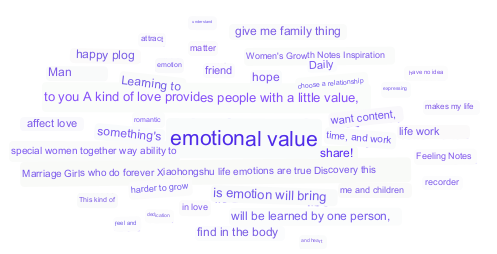China is experiencing a consumption-led recovery, with product consumption expenditure contributing to 77.2% of the whole increase, as reported by the Central People’s Government of China. This trend makes Singles’ Day (Nov. 11) this year a unique opportunity to raise awareness, boost sales and resolve inventory problems. In this article, we will delve into Singles’ Day 2023 for cautiously optimistic Chinese consumers.
Chinese consumers’ behavior under down economy
Understanding the evolving landscape of consumer behavior is the crucial first step in preparing for Singles’ Day.
Currently, China is experiencing a K-shaped recovery, where one proportion of the economy is bouncing back and the other continues to suffer the effects of the recession. Restaurants and business transportation have seen a significant resurgence, marking a 15.8% and 47% increase respectively, per the State Statistics Bureau of China. According to GHK research, an AI-powered intelligence platform and consulting service, the recovery of shopping malls is another noticeable trend, with offline stores experiencing a 29.5% increase in sales of beauty products.
Additionally, the driving force behind consumption has shifted towards self-pampering and emotional value. Guoji Technology, a data provider of social media, reports that topics related to emotional value on Little Red Book have garnered over 31.33 million views in the past 30 days. It indicates consumers’ increasing awareness of mental health and self-care.

The Qixi Festival (Chinese Valentine’s Day) in 2023 witnessed impressive ecommerce sales. Zhiyi Tech, a data analysis data for Taobao & Tmall, reported in July that product search volume for items related to “Qixi” and “Valentine’s Day” for men surged by 472% compared to July 2022, while product search volume for gender-neutral products saw an extraordinary increase of 1,412%. Additionally, the average order value experienced a 7% uptick, reaching 249 Yuan ($34.3 USD). This indicates that consumers are willing to spend for a sense of satisfaction with items like gifts to please both their loved ones and themselves and they also tend to be careful when making substantial investments.
Changing strategies of top ecommerce platforms
In addition to the social media platforms mentioned earlier, giant ecommerce platforms are taking strategic measures to stay in sync with evolving consumption trends.
Take Taobao & Tmall, China’s largest traditional ecommerce platform, for instance. They’ve embarked on a new strategy called “Return to Taobao, Users and the Internet,” which is supervised by Alibaba’s co-founder, Jack Ma. This strategy involves a significant shift in their approach, moving away from primarily prioritizing corporate to now allocating their traffic more equitably between large corporations and small to medium-sized businesses (SMBs). They are offering SMBs exclusive benefits such as lower registration thresholds, prominent marketing placements and operational support, all aimed at ensuring a steady supply of cost-effective products.
Another ecommerce giant in China, JD.com, also is actively supporting SMBs. At the start of the year, they launched the “Spring Plan,” which includes marketing packages, free operational tools, reduced deposit requirements and lower technology fees. These enticing incentives have led to a remarkable 417% increase in the number of new merchants compared to the previous year, indicating the effectiveness of their strategy in attracting and supporting SMBs.
Moreover, Douyin has reshaped China’s ecommerce beauty landscape, challenging the dominance of Tmall & Taobao. Recent reports from Shanghai Securities reveal a 6.1% revenue dip for Tmall & Taobao to $2.2 billion in the first half of 2023, while Douyin surged by 60.4% to $1.9 billion. This shift positions Douyin as a go-to platform for niche brands seeking increased visibility and sales in the dynamic Chinese ecommerce market.
Recovering industries: Wellness, fashion & beauty
While several industries are gradually recovering from the pandemic’s impact, it’s worth noting that the wellness, fashion and beauty sectors are experiencing a particularly robust resurgence.
As people’s awareness of health and well-being grows, wellness products have surged in popularity. China has emerged as a major consumer of dietary nutritional supplements, with import volumes consistently increasing year by year. According to the China Chamber of Commerce for Import & Export of Medicines & Health Products, import sales have reached an impressive $5.94 billion, with a 14.6% year-on-year increase. Additionally, it is calculated by Chinese Customs that more than 40% of consumers are now purchasing international nutrition products through cross-border platforms, and this trend is expected to continue its remarkable growth.
Beyond health, there is a keen focus on personal appearance. As people returned to offline social activity, they unleashed demand to renew their clothing and stay in tune with the latest trends. In the second quarter of this year, LVMH registered a 17% YoY global sales growth, and a 34% increase in Asia, driven by the rebound in China.
The beauty industry also is bouncing back at a fast pace. In 2023, the Chinese beauty market is projected to reach a staggering $60.7 billion, with a compound annual growth rate (CAGR) of 5.03% between 2023 and 2028. Consumers have accumulated substantial awareness and knowledge of beauty brands during the pandemic, leading to repressed demands.
Tips Singles’ Day 2023
Discover the untapped demands from Chinese consumers
This involves conducting a comprehensive analysis of potential competitors and dissecting their business models. Focus on entering market segments they may have overlooked or not yet ventured into.
Strengthen value proposition to capture customer attention
Highlighting attributes like cruelty-free practices, a commitment to Environmental, Social and Governance principles, and contributions to charitable causes can help establish a positive brand image and maintain customer loyalty.
Leverage short video and livestreams
Chinese consumers are avid followers of digital trends and often perform thorough research on social media platforms such as Douyin (the Chinese counterpart to TikTok), Little Red Book, WeChat and Kuai before making purchasing decisions. Take, for example, Douyin, boasting a daily user base of 780 million and an estimated 2022 revenue of $9.4 billion.
Pay attention to KOC
Utilize key opinion customers who have not only purchased your products but also hold a positive attitude towards them. Encourage them with incentives to share their experiences with friends or within chat groups, effectively expanding your customer base through word-of-mouth marketing.
Listen to your customers
Establish an active presence on social media platforms like WeChat to create a community where customers can provide feedback on your Singles’ Day products. This feedback should be used to drive product improvements. Furthermore, consider adopting a co-creation approach to meet and exceed customer expectations.
Franklin Chu is managing director US for Azoya International, a provider of turnkey cross-border e-commerce solutions to assist retailers looking to expand into China through a cost-effective and lower-risk method. In recent years, over 100 retailers and brands in 12 countries have partnered with Azoya to expand into China with ease, including French fashion retailer La Redoute, Australia’s largest pharmacy group, Sigma, as well as Feelunique, the largest online beauty retailer in Europe.
If you liked this article, sign up for SmartBrief’s free email newsletter on Marketing Innovation. It’s among SmartBrief’s more than 250 industry-focused newsletters.
